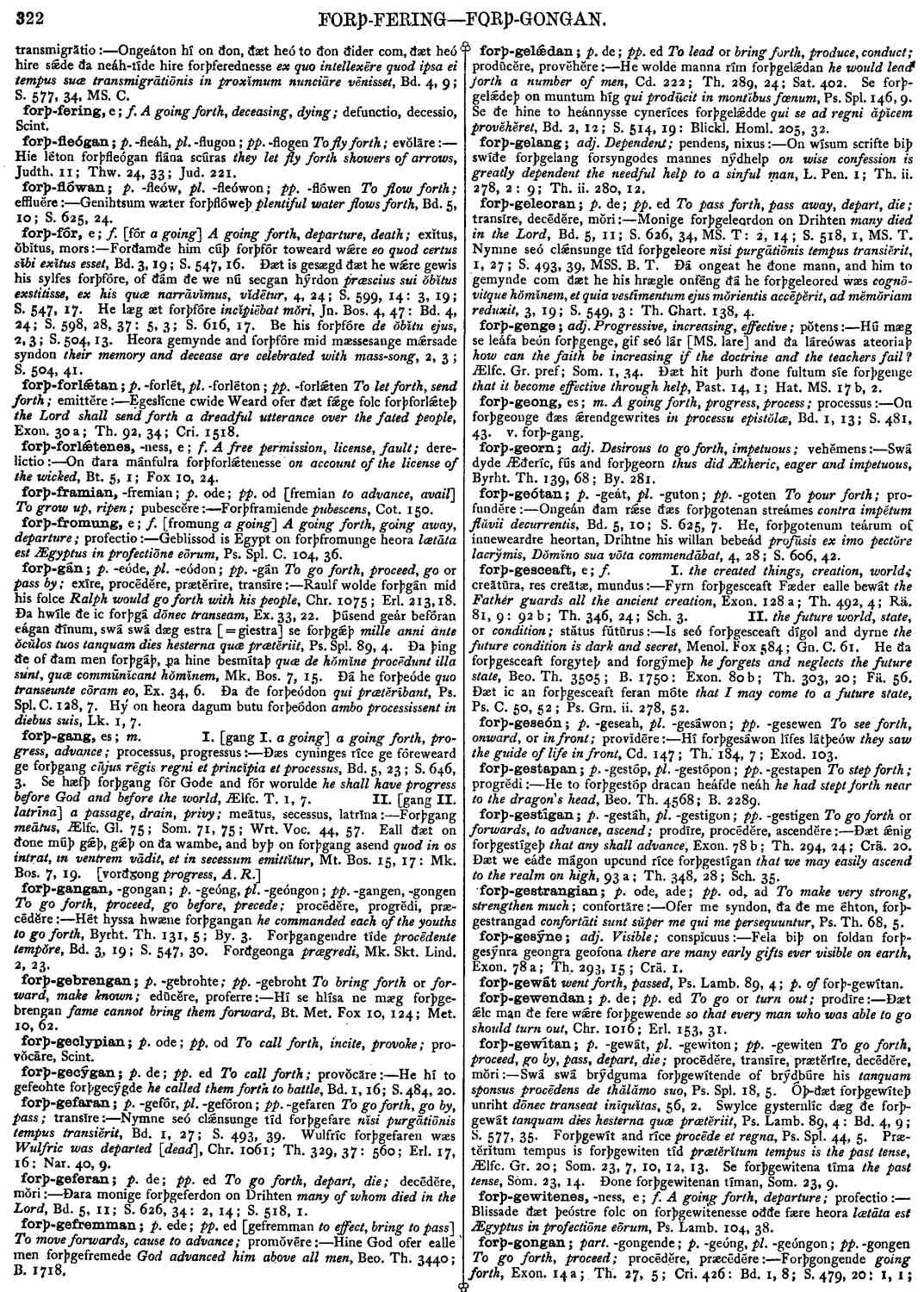forþ-gán
- verb [ anomalous ]
-
Raulf wolde forþgán mid his folce
Ralph would go forth with his people,
- Chr. 1075 ;
- Erl. 213, 18.
-
Ða hwíle ðe ic forþgá
dōnec transeam,
- Ex. 33, 22.
-
Þúsend gear beforan eágan ðínum, swá swá dæg estra [ = giestra] se forþgǽþ
mille anni ante ŏcŭlos tuos tanquam dies hesterna quæ prætĕriit,
- Ps. Spl. 89, 4.
-
Ða þing ðe of ðam men forþgáþ, ða hine besmítaþ
quæ de hŏmĭne procēdunt illa sunt, quæ commūnĭcant hŏmĭnem,
- Mk. Bos. 7, 15.
-
Ðá he forþeóde
quo transeunte cōram eo,
- Ex. 34, 6.
-
Ða ðe forþeódon
qui prætĕrībant,
- Ps. Spl. C. 128, 7.
-
Hý on heora dagum butu forþeðdon
ambo processissent in diebus suis,
- Lk. 1, 7.
Bosworth, Joseph. “forþ-gán.” In An Anglo-Saxon Dictionary Online, edited by Thomas Northcote Toller, Christ Sean, and Ondřej Tichy. Prague: Faculty of Arts, Charles University, 2014. https://bosworthtoller.com/11855.
Checked: 1